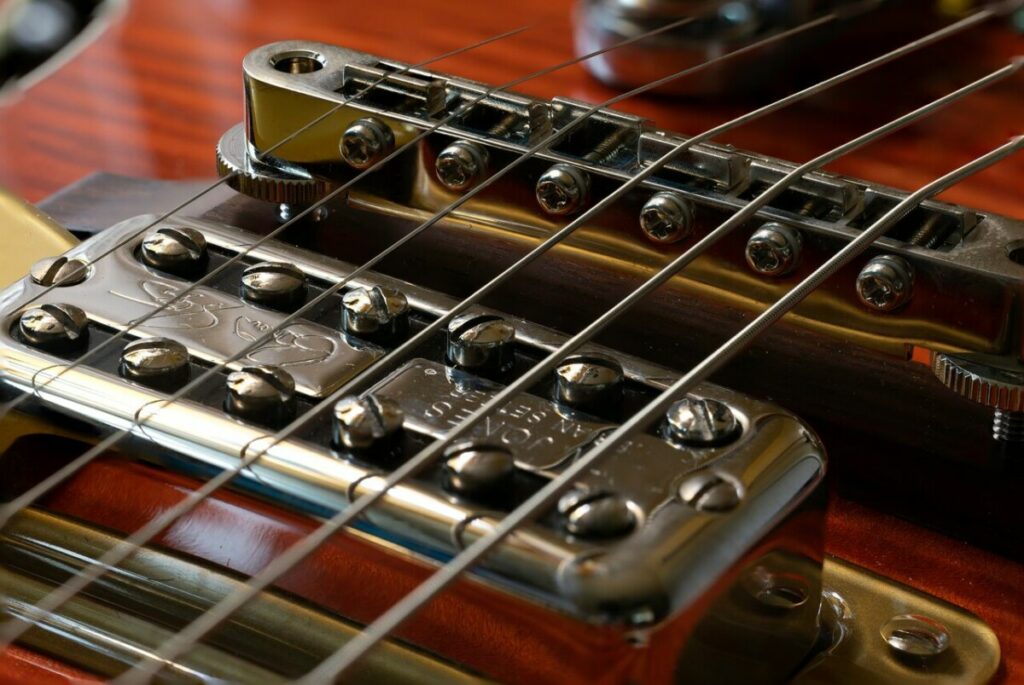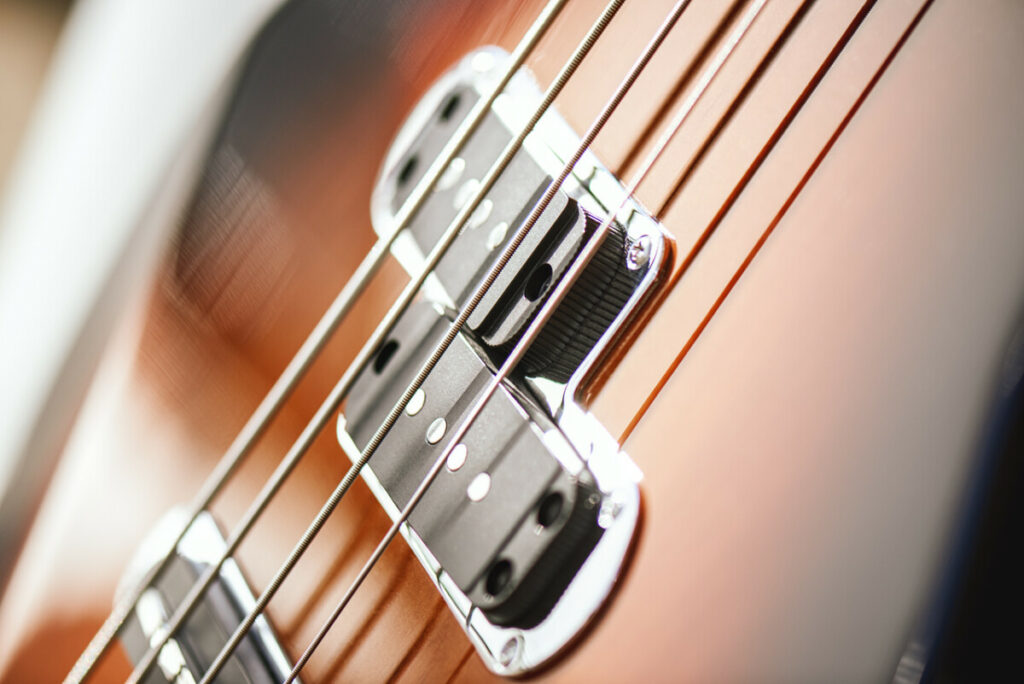Ready to shred some killer riffs?
To truly master your electric guitar, you need to dive into the world of alnico and ceramic pickups.
Think of yourself as a maestro leading an orchestra – knowing the subtleties between these two types of pickups can help you craft that flawless sound you’re chasing.
Let’s break down their unique features, compare their tonal differences, and guide you in selecting the right pickup tailored specifically for your music style. Whether you’re in a market for single coil pickups, for humbucker pickups, or any other type of pickups, you’ll find anything you need at GuitarSquid.
Table of Contents
Overview of Alnico and Ceramic Pickups

If you’re into guitars, chances are you’ve come across alnico and ceramic pickups. They’re pretty big in the game.
Alnico pickups fuse together alnico magnets and steel pole pieces to pull off their distinctive sound. Their vibe is all about warmth – think smooth highs and punchy lows that give it an old-school charm. But here’s a heads up: they don’t play too well with humidity or temperature changes, which can mess with their output levels.
Switching gears, we have ceramic pickups using ceramic magnets for a different kind of magic. These guys deliver bright tones packed full of life that cut through any mix like a hot knife through butter! Plus point? Humidity doesn’t faze them one bit; they keep pumping out consistent output levels rain or shine!
In conclusion: Alnicos ooze warm vintage vibes while ceramics steal the show with their vibrant energy – two killer options depending on your style!
Pros and Cons of Alnico Pickups

Alnico pickups pack a punch that you really need to consider.
They’re magnetic marvels, way stronger than their ceramic cousins. That means they crank out more output. If you’re shredding in a loud band or playing at rowdy venues, this can be an absolute lifesaver.
The tone? Rich and full-bodied – it’s like your sound is getting the vintage treatment.
Sure, there’s a downside – Alnico pickups aren’t cheap and will demand some TLC along with occasional rewinding.
But for those chasing that old-school vibe coupled with amplified output levels- putting your money on Alnico pickups is definitely worth every dime spent.
Pros and Cons of Ceramic Pickups
Ceramic pickups pack a bright, dynamic punch that slices through any band’s mix – making them the perfect choice for hard-hitting music genres. Let’s delve into some of the pluses and minuses you need to know about these magnetized sound wizards:
- They’re budget-friendly and straightforward when it comes to installation.
- Their high output screams out loud distorted tunes like none other!
On the flip side, there are a few potential hiccups with ceramic pickups:
- Positioning your pickup might be tricky due to its hypersensitivity.
- There can be issues with brittleness or unwanted feedback sounds creeping in.
- The price tag could soar if you require professional hands-on assistance during setup.
In summary, despite certain drawbacks, ceramic pickups hit home an electrifying tone that makes them indispensable gear for guitar gurus everywhere.
Differences in Tone Between Alnico and Ceramic Pickups
When you pit Alnico pickups against Ceramic ones, there’s a clear distinction in the sound they produce.
Crafted from an alloy of aluminum, nickel, and cobalt, Alnico pickups pack a strong magnet punch. The end result? A soft melody that oozes warmth – quite unlike the vibrant beats produced by ceramic pickups.
On the other hand, we have Ceramic pickups crafted around a ceramic bar magnet. These little beasts come with stronger magnets and more complex wiring systems that work together to deliver sharp tunes with higher output.
Each type has its own unique audio personality; however, it is their magnetic strength coupled with intricate wiring that truly sets them apart on stage or in-studio sessions.
How to Choose the Right Pickup for Your Playing Style

Hey there, if you’re looking to seriously amp up your playing game, paying attention to the kind of pickup you use can revolutionize your sound. You’ve got Alnico and Ceramic pickups topping the charts when it comes to popularity, each with its own distinct vibe. Here’s a quick rundown on what sets them apart:
- Vintage Sound: If you’re all about that vintage groove, Alnico pickups are going to be right up your alley. But hey if modern tunes are more your jam – go for ceramic ones.
- Output Level: Looking for something packing a punch? Then check out Alnico; they typically kick out higher output than their ceramic counterparts.
- Durability: Don’t let their name fool you– Ceramic pickups ain’t fragile! They’re crafted from robust materials making them tougher and longer-lasting than alnicos.
- Cost: On a tight budget but don’t want to compromise on quality? No worries! Ceramics usually come in cheaper than alnicos without skimping on performance!
- Tone: Now here’s where things get interesting – if you dig warmer tones with smooth nuances then grab an alnico pickup pronto!
Remember though – this isn’t set in stone or anything; ultimately it boils down to what suits YOUR style best and resonates most with YOU as an artist.
So take these factors into consideration but trust in that gut feeling too while choosing between either one of these bad boys!
Frequently Asked Questions
What Are the Differences in Cost Between Alnico and Ceramic Pickups?
You’re trying to figure out if there’s a price difference between alnico and ceramic pickups, right? Well, it really boils down to what you want from your sound. Alnico and ceramic pickups have different tonal qualities and magnetic powers which can affect their cost. It’s all about finding what suits your musical style best.
How Long Do Alnico and Ceramic Pickups Typically Last?
Humidity is an unexpected culprit that can shorten the life of both alnico and ceramic pickups, depending on where they are placed in your guitar setup. Generally speaking though, ceramics tend to outlast alnicos – staying crisp for longer periods. Strategic positioning could make all the difference in extending its longevity whilst maintaining an amazing tone.
Are Alnico Pickups Louder Than Ceramic Pickups?
It might surprise you that when it comes down to loudness levels – alnicos often win over ceramics because of their stronger magnetism & variant tones. Play around with both types though; who knows – maybe you’ll discover a new signature sound along this journey!
Are Alnico and Ceramic Pickups Interchangeable?
Now here’s something worth looking into – whether or not switching between these two pickup types is possible without messing up tonal quality or string clarity! Keep in mind that swapping may impact how each note sings so familiarize yourself with each type first before getting creative.
Are Alnico Pickups More Susceptible to Feedback Than Ceramic Pickups?
When using alnicos, be prepared for higher feedback levels due to factors like humidity changes or even just how tightly wound those strings are against them compared with ceramics! But don’t worry too much – being mindful of your environment and string setup could save you from unnecessary noise.
Conclusion
In the end, it all boils down to this – whether you lean towards an alnico or a ceramic pickup, it’s essential to play around and discover what truly resonates with your unique style.
As the age-old saying reminds us – ‘One size doesn’t fit every individual,’ so don’t hesitate to explore various pickups until you stumble upon that magic one that aligns perfectly with your vibe.
Ultimately, the goal is simple – uncovering that distinct sound that infuses life into your music.

